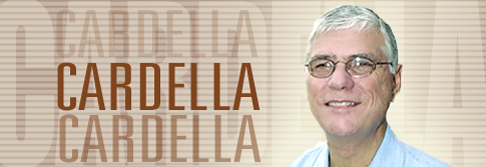The idea of helping Americans pay off their student loans sounded like a winner to me when first it was proposed by Sen. Bernie Sanders (I-Vermont) when he ran for president. Sanders’ idea was to forgive the entire debt (He also proposed tuition-free public education). Participation in either program would be open to taxpayers, regardless of income.
The student loan forgiveness was placed on the back burner when Sanders lost the nomination. Biden reportedly was not a fan of the idea. Why should taxpayers who couldn’t afford to send their own kids to college financially underwrite the cost of rich kids to attend? To most of us, it didn’t seem fair. And then the pandemic hit. And Russia attacked Ukraine. Soon, the Biden administration had to combat the bite of inflation or the Democrats would get slaughtered at the midterms. The liberal idea of student loan forgiveness seemed dead. Only it wasn’t.
Biden kept getting pressured by the Sanders/Warren wing of his party. The Dems’ chances of midterm gains were buoyed by their passing the Inflation Reduction Act — an act that might not reduce inflation at all, but which included a much-needed provision that will let the federal government negotiate lower drug prices. What could be more popular among senior citizens than lower prescription drug costs? Forgiving student loan debt would have the same popular appeal to younger voters. This kind of 1-2 punch seemed like something that might save the Senate for the Democrats. But before Biden would endorse a student loan forgiveness plan, he had to clear a hurdle in his own mind. His solution was to means-test it.
Means-testing was the element that solved the political problem for the Biden administration. The result? Capping student loan forgiveness at $10,000 on student loan debt on loans held by the Department of Education for borrowers who earn less than $125,000 a year, or married couples who earn less than $250,000 a year. Those borrowers who received a Pell Grant will be eligible for up to $20,000 in student loan debt cancellations. Private student loans don’t qualify for the Biden debt forgiveness program.
Details on how to apply for student loan relief will be announced by the Department of Education. To be sure, the devil will be in those details. Experience shows that popular programs such as the Affordable Care Act don’t always roll out smoothly. But eventually the kinks are worked out.
Borrowers reportedly will be able to apply online. But problems with forgiving student debt are far from resolved.
In doubt is whether Biden even has the authority to forgive federal student loans. That doubt does not break down along strict party lines. Speaker of the House Nancy Pelosi said in a speech last year that she believes Congress has the authority. Some experts believe that the Department of Education has the authority. There are likely a few legal challenges ahead. Should the issue wind up before the conservative-leaning Supreme Court, the plan might not survive. But there is another essential question being debated. Will student loan forgiveness fuel more inflation?
That question can be answered only by the actions of those who receive debt forgiveness. Will they, by and large, use the forgiveness money to pay down their debt? Or will they simply spend the money on purchases or incur more debt, hoping to receive future student loan forgiveness? Consider that borrowers earning under $75,000 a year could likely decide to spend the money on necessities. Unless these borrowers act to pay down their debt, tossing more money into this economy would likely only add to inflation. Increased inflation won’t help Biden and the Democrats and it certainly won’t help the students.
What of the claim by some that colleges and universities will only raise costs, negating the positive effects of student loan forgiveness? Isn’t that what’s happened in the past under similar circumstances? Shouldn’t some kind of cost restraint be placed on these schools in conjunction with any student loan forgiveness? And what about those who made payments during the repayment pause? Republican opposition is claiming that those borrowers have been treated unfairly. I suspect that not too many folks paid back student loans during the pause, but reports are that refunds will be in order for those who have.
According to Biden, about 60% of all student debt holders will benefit from this executive action. For example, more than two-thirds of borrowers in Pennsylvania and New Jersey owe more than $10,000. To quote Biden from another time, another place – “That’s a big f—–g deal.” But it’s all up to the borrowers and how they spend their forgiveness money.
Taxpayers need more protection from student loan forgiveness heating up inflation all over again.









